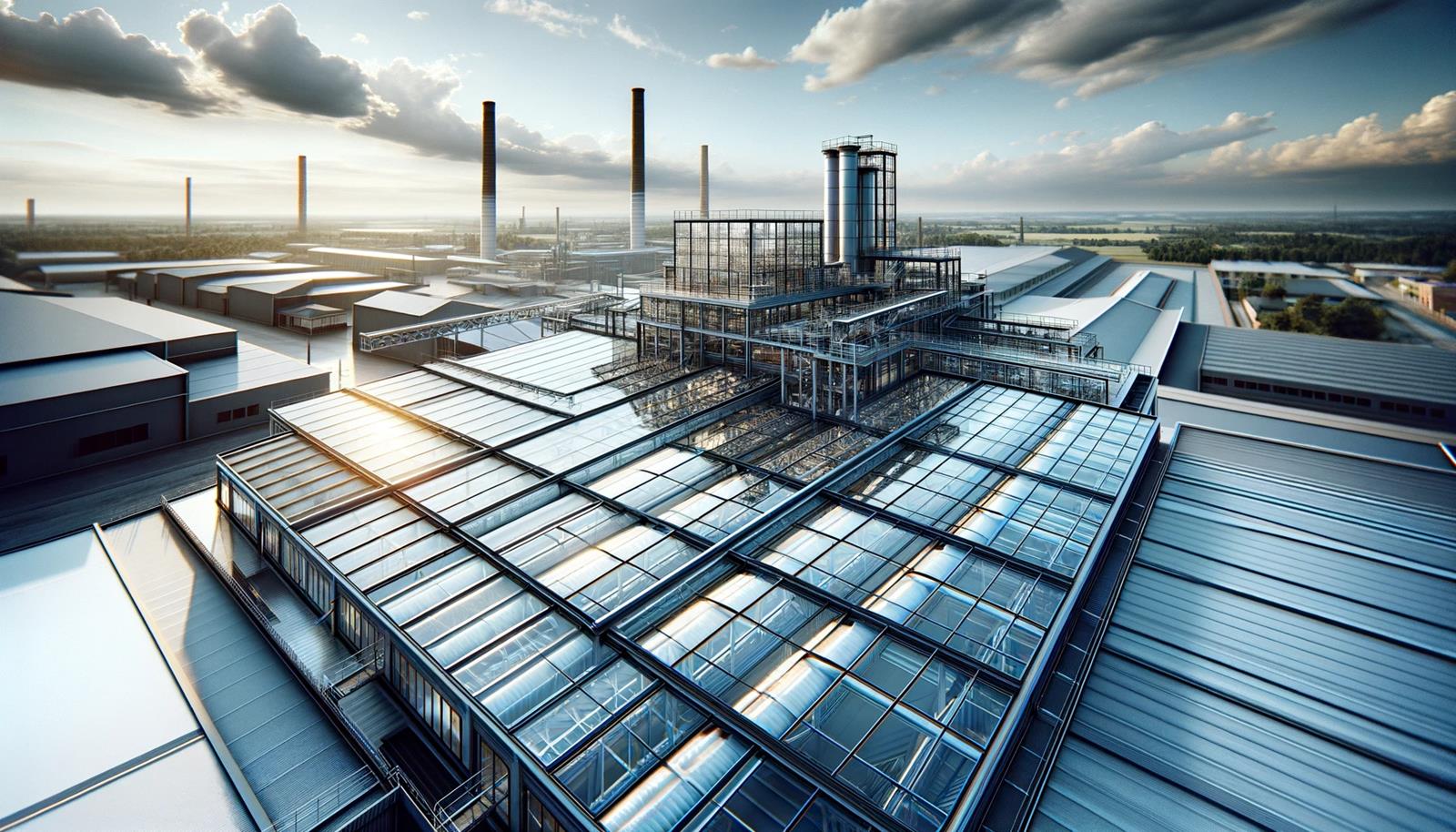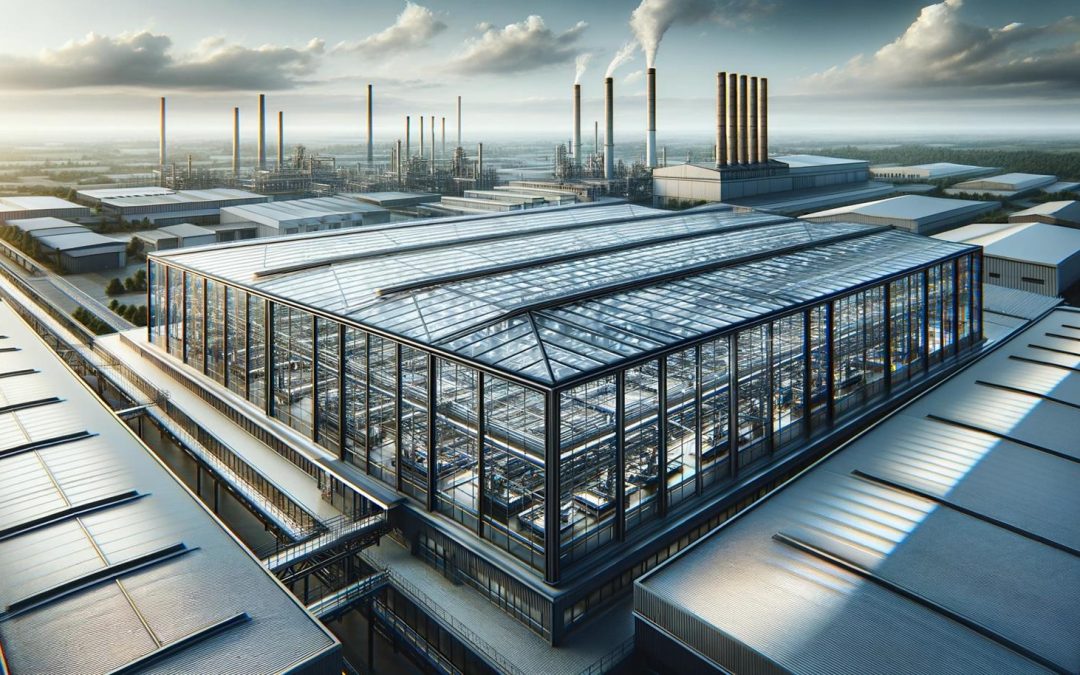Polycarbonate is a thermoplastic man-made polymer that has many uses due to its properties such as transparency, mechanical strength, impact resistance, and durability.
Table of contents:
Examples of polycarbonate applications
- Windows and doors – Polycarbonate is used in the manufacture of windows, glazing, doors and other building components due to its impact resistance, lightness and transparency.
Roof hatches and skylights made of polycarbonate have gained popularity due to their many advantages.
You can buy high-quality roof hatches at the Gulajski Company. The full offer can be found on the website: https://www.gulajski.pl/wylaz_dachowy/ We offer consulting, production, design and assembly. Telephone contact: Tel/fax.: +48 (32) 236 30 05
- Mechanical strength – Polycarbonate is very durable and resistant to impact. Windows of this type made of polycarbonate are less susceptible to mechanical damage than those made of traditional materials, such as glass.
- Lightweight – Polycarbonate is lighter than glass, which makes it easier to install and reduces the load on the building structure.
- Weather resistance – Polycarbonate windows are resistant to weather conditions such as rain, snow and UV radiation. They do not fade, do not lose transparency and do not crack under the influence of changing weather conditions.
- Good thermal insulation – Polycarbonate has insulating properties that help to retain heat in the room. Polycarbonate windows help to maintain a consistent temperature inside the building, which can help to reduce heating bills.
- Available in a variety of colors and thicknesses – Polycarbonate is available in a variety of colors and thicknesses, allowing the windows to be customized to meet the customer’s individual needs.
- Easy to process – Polycarbonate is easy to cut, bend and form, which allows you to make windows with non-standard shapes.
- Food containers – Polycarbonate is safe for food contact and is used in the manufacture of food containers, e.g. beverage bottles.
You can order high-quality polycarbonate skylights of any size from our company. See the full offer: https://www.gulajski.pl/swietliki-dachowe/ or call and ask for details: Tel/fax.: +48 (32) 236 30 05
| Use | Description | Why polycarbonate? |
|---|---|---|
| Construction | Windows, skylights, canopies | Impact resistance, thermal insulation, light transmission |
| Motorization | Body parts, windows, headlights | Strength, lightweight, high temperature resistance |
| Protection | Police shields, helmets, safety glasses | High impact resistance, transparency |
| Packaging | Bottles, containers, protective packaging | Food Safety, Durability, Scratch Resistance |
| Electronics | Phone, laptop, panel casings | Strength, lightness, aesthetics |
| Advertising | Advertising boards, displays, covers | Clarity, easy formability, durability |
| Medicine | Medical Equipment Components, Guards | Sterility, disinfection resistance, transparency |
| Sports and recreation | Sunglasses, helmets, pool covers | Impact resistance, lightweight, UV protection |
Polycarbonate is prized for its versatility and can be used in a wide variety of applications, offering unique combinations of properties that are difficult to achieve with other materials.
Polycarbonate for the roof
Below is a table with information focusing on several key aspects, such as: types of polycarbonate, their application, advantages, disadvantages and approximate prices.
| Type of polycarbonate | Use | Advantages | Disadvantages | Approximate price (per m²) |
|---|---|---|---|---|
| Cellular polycarbonate | Terrace roofs, orangeries, greenhouses, glazing | Light weight, good thermal insulation, weather resistance | Less transparency compared to glass, possibility of yellowing over time | PLN 40-120 |
| Solid polycarbonate | External glazing, canopies, wind shields | High transparency, impact resistance, easy to process | Higher cost than cellular polycarbonate, more weight | PLN 70-200 |
| Corrugated polycarbonate | Roofing, roofing, partition walls | Resistance to weather conditions, ease of installation, aesthetics | Limited thermal insulation, the need for special seals | PLN 30-90 |
Remark: Prices are indicative and may vary depending on the supplier, material thickness and other factors. We recommend that you contact our representative to provide detailed and up-to-date prices. Contact with our polycarbonate sales department: Tel/fax.: +48 513 528 235
Polycarbonate for the roof is a versatile material used in construction, especially popular as a roofing material. Below are some key aspects regarding its use on roofs:
Application of polycarbonate on the roof:
- Transparent roofing: Polycarbonate is often used to create transparent or translucent roofs, such as those in conservatories, greenhouses, vestibules or patios.
- Roofing in industrial buildings: Due to its strength and lightness, polycarbonate is ideal for industrial halls, warehouses and sports facilities.
- Canopies over the entrances: Small canopies over doors or windows are often made of polycarbonate due to its transparency and resistance to weather conditions.
Advantages of polycarbonate as a roofing material:
- High impact strength: Polycarbonate is much more resistant to impact than glass, which makes it ideal for use in places exposed to mechanical damage.
- Lightness: It is much lighter than traditional roofing materials, which makes it easier to install and reduces the load on the building structure.
- Light transmission: Transparent polycarbonate is very translucent to sunlight, which is beneficial in places where you want to maximize natural lighting.
- Weather resistance: It is resistant to weather conditions such as UV, rain, snow or wind.
- Thermal insulation: Polycarbonate multilayer panels offer good thermal insulation, which is important in heated or air-conditioned buildings.
- Design flexibility: It can be formed into various shapes, which allows you to create unique roof structures.

Types of polycarbonate solutions:
- Twin-wall plates: Often used in greenhouses and conservatories, they provide good insulating properties and diffuse light.
- Monolithic plates: Transparent and smooth, they resemble glass, but are lighter and more durable.
- Corrugated Plates: Used to create roofs with unusual shapes, flexible and easy to install.
However, when using polycarbonate on the roof, it is important to ensure that an appropriate rainwater drainage system and UV protection are provided to extend the life of the material.
Food containers made of polycarbonate are becoming more and more popular, due to their many benefits.
- Safety – Polycarbonate is a safe material that does not emit harmful substances into food. This is important because food containers must meet stringent food safety requirements.
- Durability – Polycarbonate is a very durable material, which makes food containers made of this material more durable than those made of other materials such as plastics or glass. They are less susceptible to cracks, shattering or other mechanical damage.
- Temperature resistance – Polycarbonate is temperature resistant, which means that polycarbonate food containers can be used to store both hot and cold food.
- Transparency – Polycarbonate is transparent, allowing you to easily see what’s inside the container without having to open it. This is very useful for storing food in the refrigerator, where polycarbonate food containers make it easy to organize and identify the stored products.
- Easy to clean – Polycarbonate is easy to clean, which allows you to keep your food containers clean. They can be washed in the dishwasher or by hand without fear of damage.
- Availability – Polycarbonate food containers are readily available and can be found in many grocery stores and online stores.
- Lighting – Polycarbonate is transparent and has high strength, which makes it an ideal material for lampshades, spotlights and other lighting components.
Polycarbonate is used in many applications in lighting, mainly because of its properties.
- Lamp shades – Polycarbonate is often used to make lamp shades because it is a material that is durable, sturdy, and resistant to mechanical damage. Additionally, polycarbonate is easy to mold, so it can be used in a variety of shapes and sizes, allowing you to create lamp shades with a variety of appearances.
- Reflectors – Polycarbonate is also used in the production of reflectors because it is a material that allows light to pass through and at the same time is resistant to mechanical damage and harsh weather conditions.
- Street Light Shades – Polycarbonate is often used to make street light shades because it is a material that is durable and resistant to weather conditions such as rain, snow, or UV rays. Additionally, polycarbonate is shatter-resistant and easy to clean, making it an ideal material for street light shades.
- Lighting panels, skylight – Polycarbonate is also used in the production of lighting panels, as it is a material that allows light to pass through, and at the same time is durable and resistant to mechanical damage. Additionally, polycarbonate is easy to clean and keep clean, making it an ideal material for lighting panels.
- Sporting goods – Polycarbonate is lightweight and impact-resistant, which makes it an ideal material for helmets, pads, and other sporting goods.
- Electronics – Polycarbonate is used in the manufacture of enclosures for electronic devices such as computers, televisions, and LCD televisions.
- Outdoor furniture – Polycarbonate is resistant to weather conditions and is used to make outdoor furniture such as tables, chairs, and benches.
Polycarbonate is used in the production of garden furniture due to its properties, such as durability, resistance to weather conditions and ease of cleaning.
- Table tops – Polycarbonate is used as a material for making garden table tops because it is a material that is durable and resistant to weather conditions such as rain, sun, and wind. Additionally, polycarbonate is easy to clean, making it an ideal material for garden table tops.
- Greenhouses – Polycarbonate is used in the production of garden greenhouses because it is a material that allows light to pass through while being durable and weatherproof. In addition, polycarbonate is lighter than glass, which makes it easier to install and more practical to use.
- Seats and backrests – Polycarbonate is also used as a material for making seats and backs in outdoor furniture because it is a material that is durable and weather-resistant. In addition, polycarbonate is easy to clean, which makes it practical to use.
- Safety barriers – Polycarbonate is used as a material for the production of a safety barrier in garden furniture, because it is a material that is durable and resistant to mechanical damage. In addition, polycarbonate is resistant to weather conditions, which makes it an ideal material for the production of a protective barrier in garden furniture.
- Sewer systems – Polycarbonate is used in various components of wastewater treatment systems.
- Biological reactors – Polycarbonate is used to manufacture coatings on biological reactor vessels that are able to withstand extreme conditions such as high temperature, pressure, and corrosive environments. The polycarbonate coating protects the tank from damage and extends its life. Such solutions are available in the domestic sewage treatment plant, especially in the biological versions of the sewage treatment plant.
- Grease separators – Polycarbonate is used in the manufacture of grease separators because it is a material that is durable and resistant to acids and alkalis. In addition, polycarbonate is easy to clean, which makes it practical to use. Polycarbonate grease separator prevents environmental pollution and helps to protect the sewer network.
- Ducts and pipes – Polycarbonate is used in the manufacture of ducts and pipes because it is a material that is durable and resistant to corrosion. In addition, polycarbonate is resistant to chemicals, which makes it practical in the construction of sewage systems.
Polycarbonate is used in the construction of sewage systems due to its properties, such as durability, resistance to acids and alkalis, as well as corrosion. In addition, polycarbonate is easy to form and process, making it a practical material in the construction of sewer systems.
In addition to the above uses, polycarbonate is also used in other industries such as automotive, medical, aerospace, and aerospace.
Autor: Tomasz Matuszek; Dział Marketingu - Firma Gulajski

